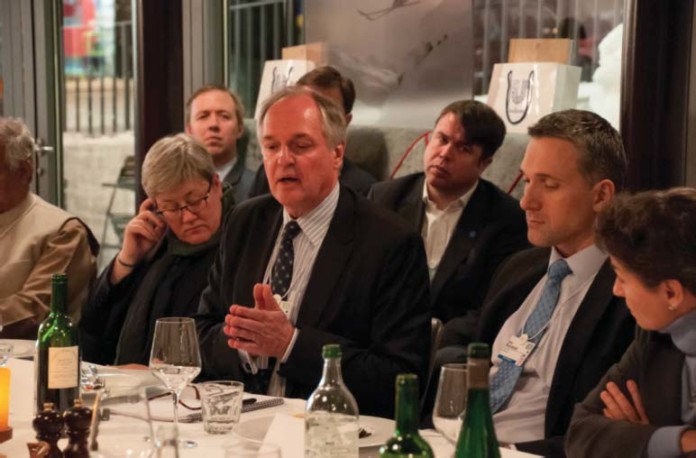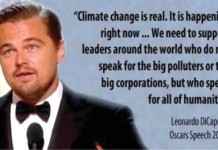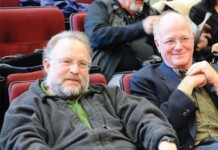Leaders of The B Team running some of the world’s largest companies, called upon world leaders to commit to a global goal of net-zero greenhouse-gas (GHG) emissions by 2050 – and urged business leaders to match this ambition by committing to bold long-term targets.
The B Team’s ambition builds on recent talks at the COP20 climate summit in Lima, and is grounded on an assessment of the latest scientifi c research, business risks and the economic costs of failing to keep within the 2°C threshold.
Government leaders are set to hold climate talks at COP21 in Paris this December to negotiate a global agreement. The December meeting will be a defi ning point in human history, with high hopes of an ambitious agreement to replace the Kyoto Protocol and limit mean temperature increases to 2°C.
The B Team Leaders who include Ratan Tata, Richard Branson among others, believe that by committing to net-zero greenhouse-gas (GHG) emissions by 2050, governments will demonstrate they are unequivocally setting the world on a clear, lowcarbon trajectory. Businesses will respond by embedding bold climate action into their strategies – unleashing innovation, driving investment in clean energy, scaling-up low carbons solutions, creating jobs and supporting economic growth.
Action Areas
• For governments to commit to a global goal of net-zero greenhouse gas emissions by 2050, and to embed this in the agreement to be signed at COP21 in Paris.
• For businesses to match this ambition by committing to long-term targets and driving low-carbon solutions to scale – thereby enabling the world to achieve the net-zero 2050 target.
• For both businesses and governments to adopt meaningful and effective carbon pricing.
• For governments to end all fossil fuel subsidies, and to shift this capital to help scale affordable renewable energy solutions to enable a wider economic transformation.
• For both businesses and governments to ensure the benefi ts of responses to climate change fl ow to vulnerable and impoverished communities that suffer disproportionately from climate change and are least equipped to cope with its impacts.
Paul Polman, CEO of Unilever and B Team Leader, encouraged other leaders to follow suit: “A target of net-zero emissions by 2050 is not only desirable but necessary. This is the time to redouble our efforts and further accelerate progress to decarbonize our economy. This is not going to be easy, but the earlier we act the greater the economic opportunities will be.”
Sir Richard Branson, Founder of the Virgin Group and Co-Chair of The B Team noted: “Taking bold action on climate change simply makes good business sense. It’s also the right thing to do for people and the planet.”
Nobel Laureate Professor Muhammad Yunus who is Chairman of the Yunus Centre and a B Team Leader stated “We are at a historic crossroads on climate change. I believe that a “net-zero emissions by 2050″ target would set the precedent for a sustainable energy world.”










